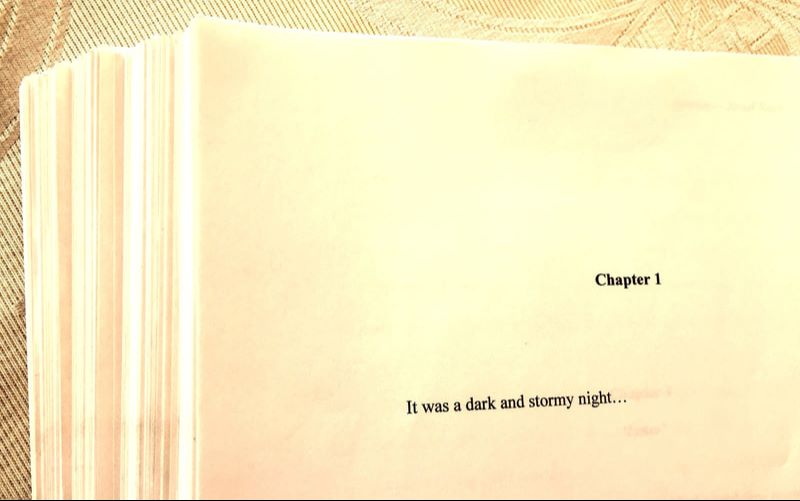|
I know a fair number of authors, and the vast majority of them wrote unpublished (and sometimes unpublishable) manuscripts before seeing their “first” book on the shelf. So much so that I’ve come to think of the OBFN (Obligatory Bad First Novel) as part of the process.
(*note: the actual number of OBFNs one may have can vary from zero to many. I refer to it in the singular for clarity, and because most of us have at least one.) You hear it all the time—writing a novel isn’t a sprint, it’s a marathon. Very true. It’s a long, sometimes arduous process, and it’s better to think of it in small steps rather than trying to wrap your head around the enormity of it all at once. Who wants to think about actually sitting down and writing twenty-six chapters, or stepping out the door and running twenty-six miles? Better to deal with it a chapter—or a mile—at a time. As Anne Lamott says, just take it bird-by-bird. But there’s another, less obvious way a novel is like a marathon. Experienced distance runners say it takes you two or three marathons just to get the damn thing figured out. How to train, what to eat and drink, what a realistic pace looks like, etc. (To include a bunch of variables you haven’t even thought of until you’re in the middle of it. Like when you’re a dozen miles from the start and you went out a little too fast and you feel like complete toast and you realize you’re not even halfway done yet and holy crap you feel a cramp coming on. Talk about your sagging middle…) So yeah, it might take a while to figure out what works for you, writing-wise. And the place this learning curve happens may be during your first novel. And that right there is a great reason to write it—you’re going to learn stuff in the process that you cannot get anywhere else… not from a class or a book or a conference. Stuff about yourself, and about what process works best for you. So the OBFN is definitely part of the journey, and you should view it as such and not get too twisted up about it. I’m not saying, “Your first novel is going to suck.” It may be great, or not. I’m saying it doesn’t really matter. At least not as much as you think it does in the middle of it. Because there’ll likely be more. And they’ll likely be stronger, building on what you learned during your OBFN. I didn’t know any of this when I wrote my OBFN. I just thought I was writing an awesome book and I hoped everyone would love it. Alternating with feeling like I was working on the worst piece of garbage ever committed to paper. But either way, it was such a struggle while I was in the middle of it that I couldn’t imagine anything beyond it. (Not helped by the fact that it was a 500-page epic techno-thriller with three or four viewpoint characters… one of whom was a dog.) My mindset was, “This is it--my novel! It had better be perfect, because it’s my one novel!” Of course coupled with, “It had better get published, because it’s my novel!” Guess what? It wasn’t perfect. And it didn’t get published. (And as it turns out it wasn’t my only novel. But I sure didn’t know that at the time.) I managed to get an agent with it, and he shopped it around to all the usual NYC publishing houses. And he got some nibbles from some of them. (One of whom said, “This was a very close call.” Which in some ways was worse than nothing.) But in the end it wasn’t placed, I was sort of heartbroken, and I went back to writing non-fiction for a while, thinking, “Boy, that was a waste of a year.” But here’s the secret: It wasn’t. Not at all. I learned so much from that process, and it substantially changed the way I approach writing fiction, dumping all the stuff that didn’t work for me (including a fair amount of ‘conventional wisdom’) and keeping the stuff that did, learning to trust myself a little more. The next manuscript I wrote was placed (with help along the way from a great editor and a different—and amazing—agent) and published. But it absolutely wouldn’t have been without the OBFN preceding it. And if I had to do it over I wouldn’t change anything, including the “failure” of my first novel. Now I look back at it and think, Thank God that wasn’t published, because it honestly wasn’t that good (and a not-so-good book out of the gate can hurt your future prospects), and more important, even with substantial revision it wouldn’t be the kind of book I want to write going forward (it was all plot and no character). So I’m not saying, “Don’t try, because a significant percentage of first attempts don’t ultimately publish.” I’m saying “By all means, jump in with both feet—write that sucker! But don’t stress over it, because you really can’t lose. Either it’ll be a blockbuster (good on you!) or it won’t, but either way it’s a necessary part of the process, and either way you’ll learn more about novel writing than you would reading a dozen how-to books.” And either way, it’s a hell of a ride. So—if you have one—tell us about your OBFN…
0 Comments
Leave a Reply. |
The Craft and Business of
|

 RSS Feed
RSS Feed